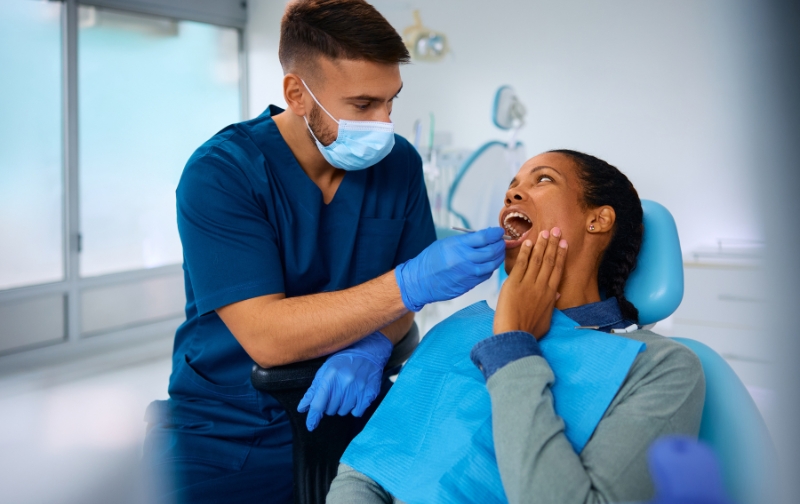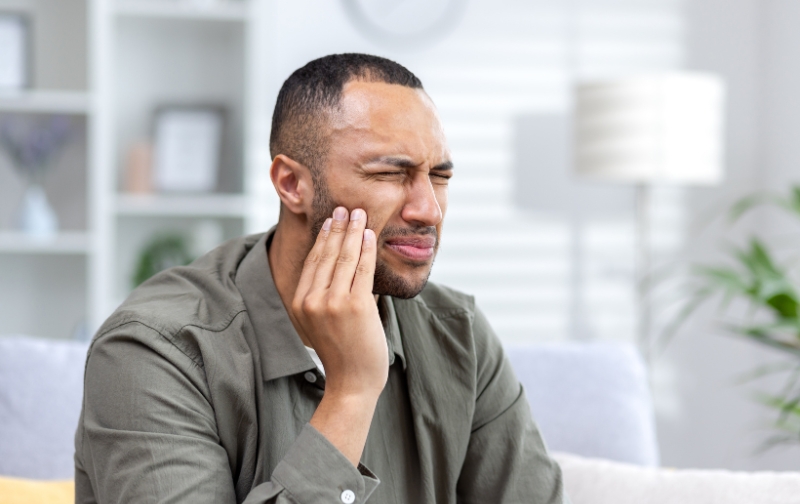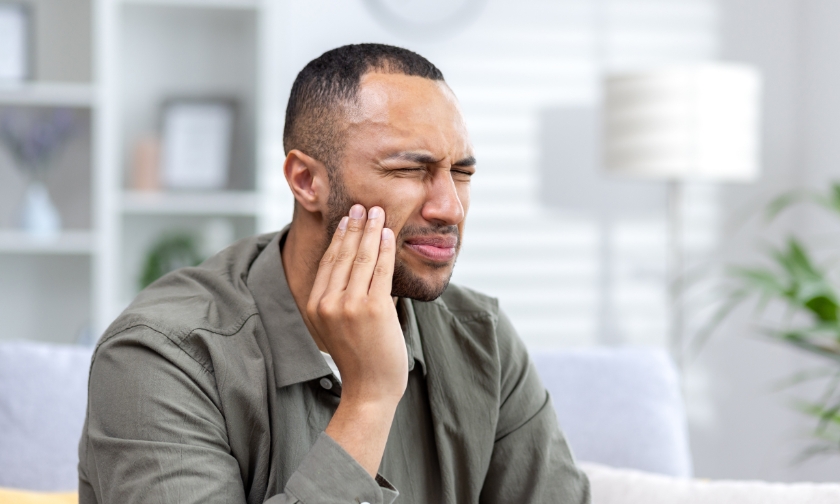
A playground tumble, a pick-up game, a late-night snack—lips and tongues get hurt fast. The good news: the majority of lip and tongue injuries look worse than they really are and mend well with regular, uncomplicated treatment. This guide by Dr. Davidson at Newton Dental Studio shows you what to do right away, when to call, and how to get the area to heal — so you can worry less and heal quicker. Soft-tissue injury is common in dental trauma, especially lip lacerations, so a plan is useful.
First things that actually help (first 10 minutes)
- Apply pressure with clean gauze for 5 to 15 minutes to constrict blood flow.
- Rinse gently with water to clear debris; scrubbing can be avoided.
- Apply a cold compress to the outside of the lip or cheek to decrease swelling.
If you’ve bitten your lip and tongue, those basics are your first place to go.
When to seek care
Call your emergency dentist the same day if you observe any of the following:
- Bleeding that won’t quit after 10–15 minutes of sustained pressure
- An intense injury (skin to mouth)
- A wide gap/cut, rough edges, or loss of tissue
- Numbness or trouble speaking, or fear of possible tooth or jaw injury
- Signs of early infection during the next day or two: more pain, swelling, fever, or pus
Severe cuts on the face and uncontrolled mouth bleeding are in urgent need of attention from an emergency dentist.
If you need same-day dental care, contact our Newton emergency dentist for immediate guidance and effective care.
Do cuts on the tongue require stitches?
Usually, no. The majority of tongue lacerations will heal without suturing, especially small, midline lacerations. A review of reported cases found that fewer than a quarter of tongue lacerations were sutured; the remainder were treated conservatively with cleaning, pressure, and observation.
Stitches are (usually absorbable) for gaping, large wounds, edges that don’t have a chance to meet, tip or edge injuries that affect speech, and deep injuries.
Home care that heals
After the first day, keep things gentle:
- Choose a soft, cool diet for several days; avoid crunchy, hot, or spicy foods.
- Rinse your mouth with warm saltwater after meals to keep the area clean (do not swish vigorously).
- No alcohol or tobacco use during healing.
- Watch for infection signs (increased pain, swelling, fever, drainage); see an emergency dentist if they occur. Infection rates for oral lacerations vary in studies, so monitoring is important..
If sutures have been done, your Newton emergency dentist will tell you what to expect and when to return for further care.
Prevention of the next injury
Sports are a common reason behind mouth/oral injuries. A fitted mouthguard reduces the frequency and severity of oral injury and protects lips and cheeks on impact. Consider getting one for sports practice as well as for regular play times.
Night-time cheek or tongue biting may accompany teeth grinding. We will smooth rough surfaces or discuss simple protective steps to keep you pain-free.
Lip lacerations bleed heavily, which can seem intimidating. Most heal quickly with pressure, cleaning, and on-time dentist’s assistance. If you ever struggle with lip and tongue biting, call Newton Dental Studio for definitive guidance and same-day care from the office of Dr. Davidson.


